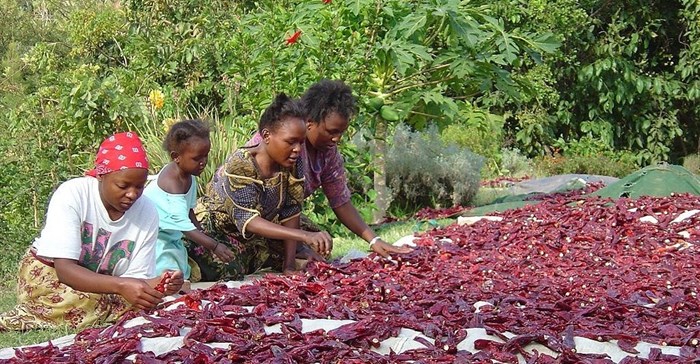Women farmers across Southern Africa are getting ready for the annual gathering of women in agriculture, aimed at strengthening the entrepreneurial capacity of women in this sector. The annual gathering will take place from 26-29 September 2016 and is organised by the Southern African Confederation of Agricultural Unions (SACAU).
Turning ambitious dreams into reality
SACAU CEO Ishmael Sunga has urged women to escalate their aspirations in agriculture. “We need to have ambitious dreams. Then we need to translate these dreams into reality. The sad truth is that many dreams are never realised due to poor execution of plans. As such, SACAU is focused on helping all farmers get the skills, knowledge, and access to resources to turn their ambitious dreams into reality,” said Sunga.
“There are numerous opportunities for women farmers to take advantage of in the business of agriculture. The stage is set for farmers to begin driving agricultural entrepreneurship across the continent,” he noted.
“We must move beyond conventional thinking of women empowerment. We must look towards technology and how we can take advantage of the agriculture value chain to grow women farmers in Africa.” He urged the sector to begin new conversations on gender in agriculture.
Addressing challenges faced by women in agriculture
“For agro-entrepreneurship to thrive, equitable access to production resources is needed by all - including women. We must ensure access to rewarding markets to all farmers, since markets are the pulling force for production,” said Sunga,
He noted that a conducive policy environment that will lead to the transformation of the agriculture sector was essential. In this regard, it was important to monitor government implementation of commitments to global instruments including the Malabo Declaration on African Agriculture.
The Malabo commitments have specified that Africa has to address the challenges faced by women that include limited access and control of ownership of land, limited access to agricultural labour, limited access to technologies and agricultural extension services, limited access to financial services, low productivity, and lack of adequate disaggregated data and indicators.
There are already several treaties for gender empowerment including COMESA’s initiatives on Gender and Women Empowerment and CAADP’s National Agriculture Investment Plans (NAIPs) which all have a gender component.









































